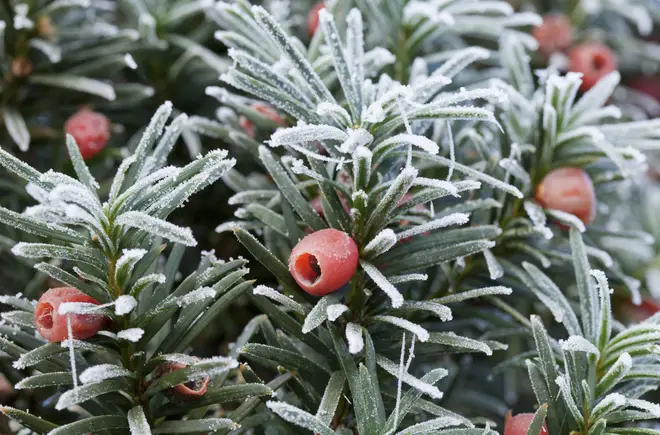
Henry Riley 7am - 10am
4 December 2023, 14:52 | Updated: 4 December 2023, 15:36

A coroner has warned against eating yew tree berries after a boy collapsed and died less than 24 hours after ingesting the fruit.
Benn Curran-Nicholls, 14, had eaten the berries during a walk around Fletcher Moss Park in Manchester on 18 September 2022.
At the inquest, Coroner Andrew Bridgman criticised the local council for not issuing a public health warning following the teenager’s death, calling the lack of action "illogical".
He added that there should be signs in the park to notify the public that the yew tree is poisonous.
The Coroner concluded that Benn died from "misadventure".
The UK Health Security Agency (UKHSA) said it was now supporting Manchester City Council after the incident and said it would "respond to the coroner’s recommendations in due course."
Read more: Wife of Ukraine’s military spy chief hospitalised after being poisoned with ‘heavy metals’

The teenager, who was autistic, ate the berries and the leaves from a yew tree he had often climbed on his daily walks.
After returning from the walk, he "slumped" at his home before his eyes "started to roll around his head."
He died the next day in Royal Manchester Children’s Hospital.
According to the inquest, Benn died from "refractory cardiogenic shock due to taxane alkaloid poisoning, following ingestion of yew tree berries and leaves".
Yew trees and hedges are highly poisonous and its berries and seeds have higher levels of toxins than others.
Eating just a few berries or leaves can be fatal.
The boy’s father did not know that the berries were toxic; the coroner added the local authority's neighbourhood manager for environmental health was also unaware of the tree’s poisonous properties.
Benn and his family moved from Australia to Didsbury, Manchester, in June 2022.
Mr Bridgman said the incident has prompted him to issue a prevention of future deaths report, which he has sent to the council.
He added that being poisoned from yew trees was rare but cases have been reported.

Following Benn’s death, UKHSA justified its decision to not put out a public health alert, which it thought would do "more harm than good", it told Manchester Evening News.
The council told the inquest that it had not publicised the risks behind eating the berry due to concerns over suicide attempts and because it would be telling the public not to ingest something they "wouldn’t usually be eating."
However, Mr Bridgman was not satisfied with the Council’s reasoning and said: "The reason for not sending out comms messages for educational/warning and informational purposes... is illogical.
"Berries and the like might be attractive to young children who would not recognise the dangers and risks of even illness, let alone death."
His other concern focused on the lack of notices in the park "warning of the poisonous nature of the yew tree, and risks of eating its berries and leaves".
Manchester City Council has declined to comment.
A representative from UKHSA said: "Our thoughts remain with the family.
"UKHSA continues to support colleagues at Manchester City Council regarding this tragic case and we will respond to the coroner's recommendations in due course."